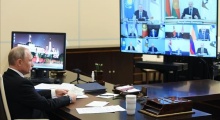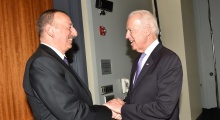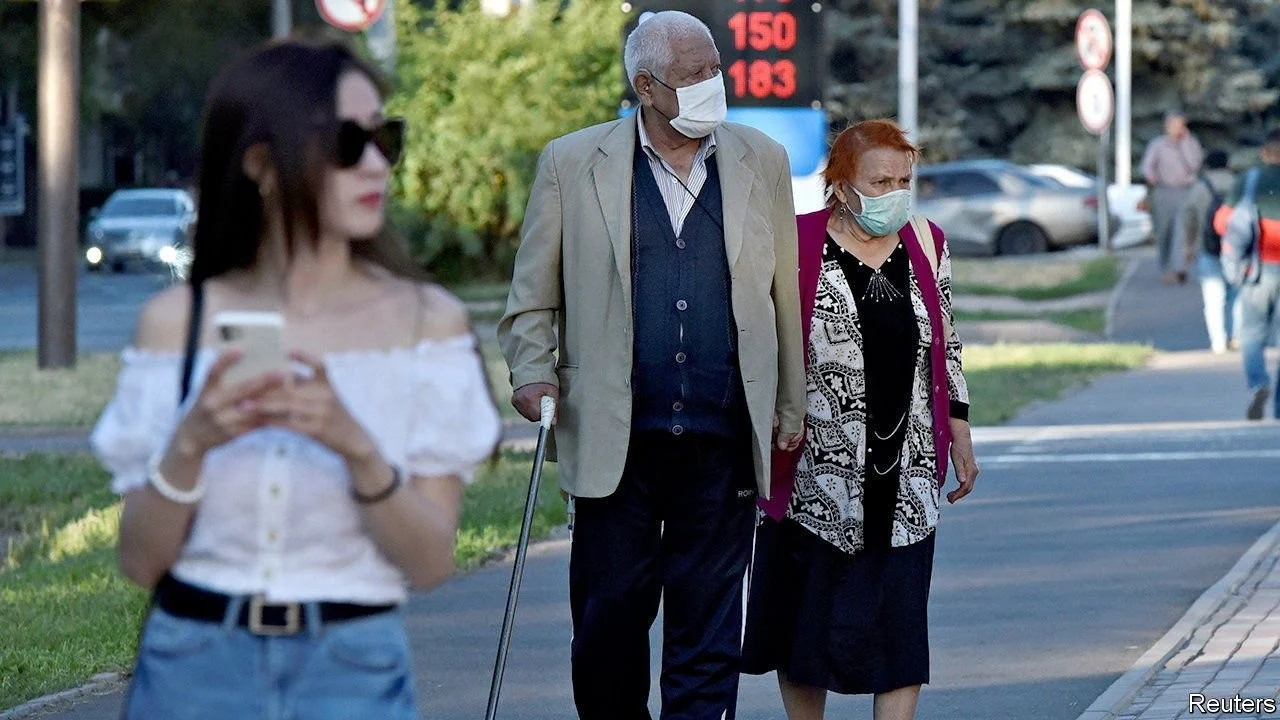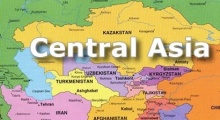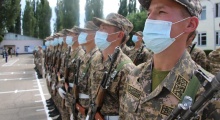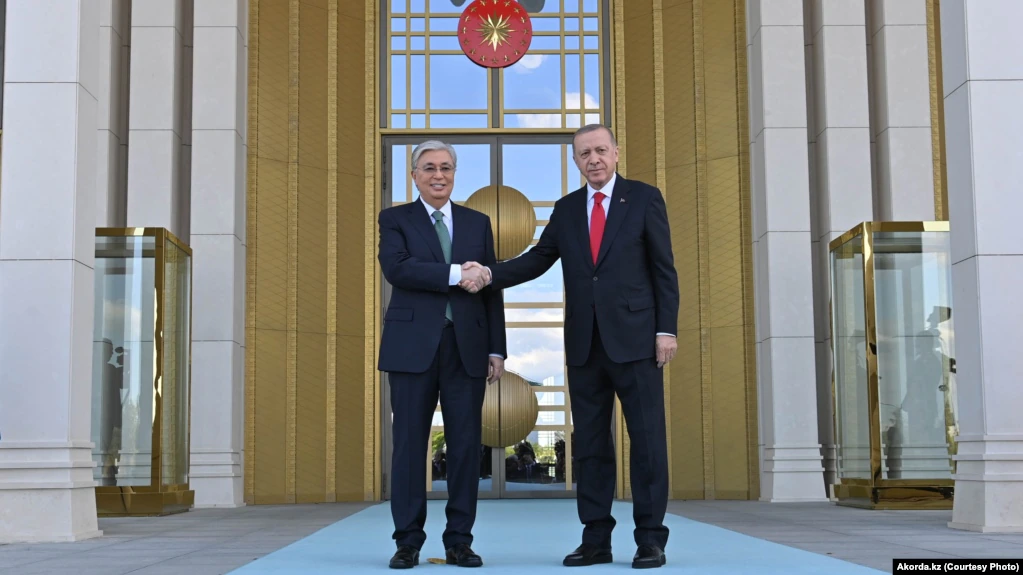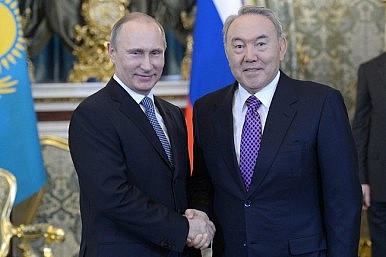 The crisis in Ukraine has prompted many in Kazakhstan to ask whether it will be next to be targeted by Russia - and which way the Central Asian country's Russian community would turn if relations with its neighbour turn sour - reports the BBC's Abdujalil Abdurasulov.
The crisis in Ukraine has prompted many in Kazakhstan to ask whether it will be next to be targeted by Russia - and which way the Central Asian country's Russian community would turn if relations with its neighbour turn sour - reports the BBC's Abdujalil Abdurasulov.
Geographically, Kazakhstan is in sunny Central Asia but when you travel to the north of the country, you end up almost in Russia's Siberia.
It is grey and cold here in autumn and it snows in early October.
The North Kazakhstan region's capital - Petropavlovsk - was founded by the Russian Empire as it was expanding eastwards in the 18th Century.
The city's name and its old wooden houses reflect its Russian past. Half of the population of the north region are ethnic Russians.
Areas such as this are now increasingly shaken by the crisis in Ukraine and the fighting between government forces and pro-Russian separatists.
Russian President Vladimir Putin's portrayal of himself as a defender of ethnic Russians has prompted many to wonder whether Kazakhstan is next on the hit list.
Such fears are intensified by some Russian politicians who occasionally make remarks about "taking back" northern Kazakhstan amid growing anti-Russian sentiment there.
President Putin was recently asked about nationalism in northern Kazakhstan at a youth forum. If it is true that all questions for Mr Putin are carefully picked and censored, then this could be interpreted as a warning for Kazakhstan's government.
Not threatened
But people who live in northern Kazakhstan do not exhibit such fears.
"I've never heard of any anti-Russian hate speeches," says Viktor Bondarenko, a university teacher.
Mr Bondarenko was born in Kazakhstan when it was part of the Soviet Union. He was a coach and trained Soviet athletes.
After the collapse of the Soviet Union in 1991 he decided to stay. He says he feels comfortable in Kazakhstan.
Some do want to leave for Russia but not because they feel threatened. Anton Ponamaryov, 24, is one of them. His motives are purely financial.
"I'm a builder and the salaries in Kazakhstan are very low," he says. "That is why I want to go and work in Russia and possibly even stay there for good."
Image of unity
However the rush to deny any suggestion of inter-ethnic tensions and instead portray an immaculate picture can sometimes feel a little staged.
A leader of one of the Russian cultural centres in Petropavlovsk got angry on the telephone as soon as I mentioned that I was working on a report about the life of Russians in the country.
"We don't have any problems here, don't come and create trouble. And don't call me anymore," he shouted as he hanged up.
If there is some resentment, many are afraid to discuss it for fear of fuelling tensions. Perhaps it is the crisis in Ukraine which makes everyone so sensitive.
Instead, residents want to present an image of diversity and unity.
At one concert organised by a cultural centre in a remote village outside Petropavlovsk, I watched performers diplomatically stage Russian and Kazakh traditional dances.
'Very sensitive issue'
Unquestionably, though, the government is nervous about an issue which it would have ignored before.
It recently introduced tougher sentences for anyone who calls for changes to the territory of Kazakhstan.
And it is also true that the crisis in Ukraine has prompted many here to ask who the Russian community in Kazakhstan would support if relations with Moscow turned sour.
"Events in Ukraine became a good lesson for Kazakhstan," says Dosym Satpayev, a political analyst.
He says that it helped people to realise that northern Kazakhstan is a very sensitive issue - and not simply because of large Russian communities living there.
Mr Satpayev argues that people in the region, like many others in Kazakhstan, are especially receptive to Russia's propaganda machine.
"It means that if there is a conflict between our countries, some people in Kazakhstan will support Russian policy towards Kazakhstan," he says.
"And maybe some of these people will support the same scenario as we see in Ukraine."
Such concerns have led to some friction with Moscow.
Kazakh President Nursultan Nazarbayev has even talked of leaving President Putin's Eurasian Economic Union "if it threatens independence".
This union - that comes into effect next year - is in effect a club of Russia's friends. It aims to lift all barriers for trade among members and create a common market.
The idea of the union with Russia is popular in Kazakhstan. But events in Ukraine have also made many wary about further integration with their northern neighbour.
"What if a new leadership of Kazakhstan who will come to power after President Nazarbayev decides to leave the Eurasian Economic Union?" asked Mr Satpayev.
"I am not sure Russia will support this. Will we experience the same [pressure] as in Ukraine then?"
BBC News




